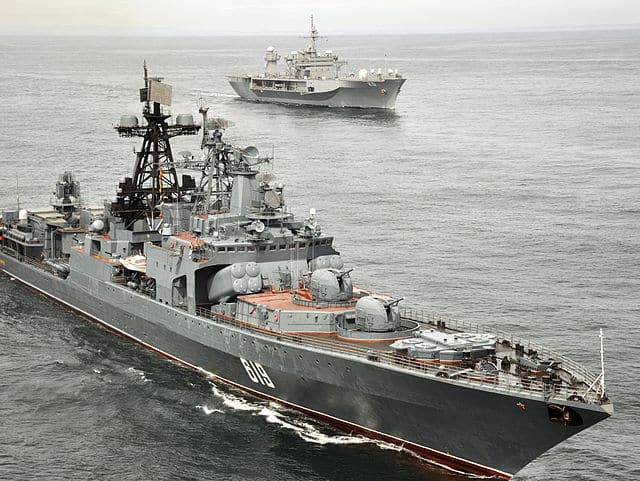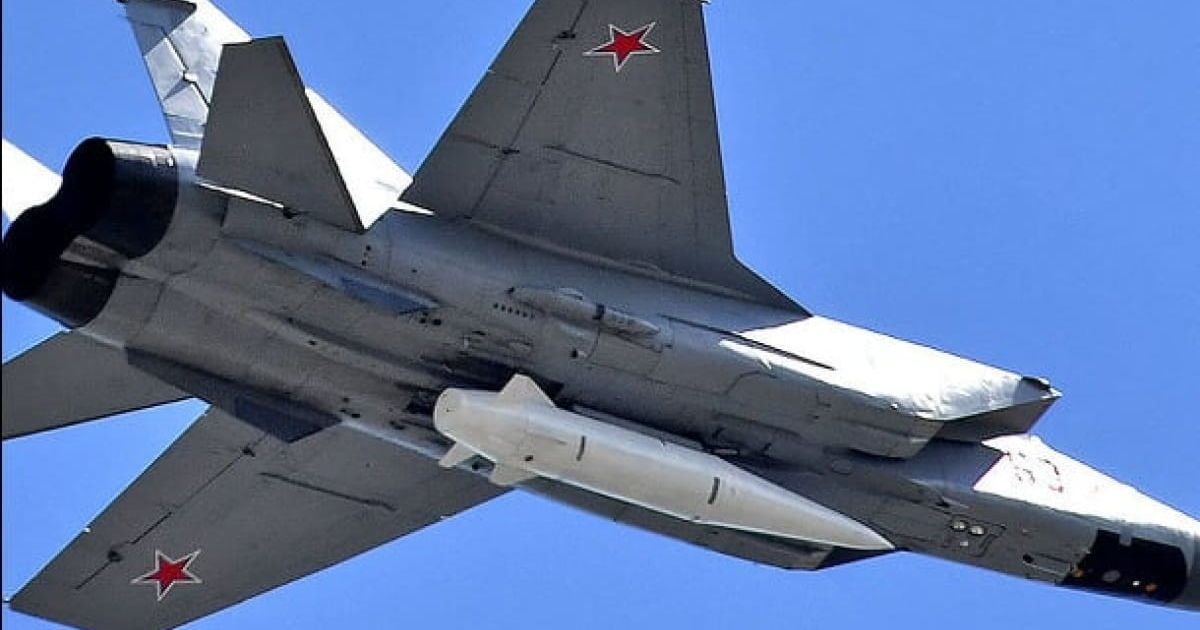Table of Contents
Assessing the risks and threats of Wagner mercenaries in Belarus
It has just been announced that the Wagner mercenaries will be “vacationing” in Belarus at their own expense. Ukraine has begun to assess the risks and threats posed by the presence of this “orchestra” and its “conductor” in the neighboring country. It is still unclear how many mercenaries will head to Belarus and what they will do there. Will they participate in a new campaign against Kyiv? Warsaw and Vilnius? Or perhaps Belarus is just a temporary staging point before these “musicians” go on their “tour” in Africa?
NATO member countries bordering Belarus view the Wagner mercenaries as a direct and explicit threat.
“According to our information, there are approximately eight thousand soldiers there [expectedly – ed.]. This poses a threat to Ukraine and potentially to Lithuania and us. It could signify a new phase of hybrid warfare, a much more complex phase than what we have dealt with so far,” stated Deputy Prime Minister of Poland, Jarosław Kaczyński.
Ultimately, Poland has decided to strengthen its eastern border by increasing the number of military personnel and adding barriers and fortifications.
In Kyiv, there is a more calm atmosphere. President Volodymyr Zelenskyy is confident that the deployment of Wagner mercenaries to Belarus cannot pose a serious threat to Ukraine.
“I cannot say how much they will pose a threat to anyone on the territory of Belarus because I believe that their contingent will not be very large,” stated the President of Ukraine.
However, the movement of Wagner mercenaries was still discussed at the headquarters of the Supreme Commander, and Zelenskyy ordered the Chief of the General Staff of the Armed Forces of Ukraine, Valerii Zaluzhnyi, and the Commander of the Joint Forces of the Armed Forces of Ukraine, Serhii Naiev, to strengthen the northern direction.
Therefore, by sending Wagner mercenaries to Belarus, the Kremlin was still able to divert Ukrainian military from other areas to the Ukrainian-Belarusian border. We hope that we have built a defensive line in the north that is as strong as the Russians have in the south.
However, the “musicians” have long been present in Belarus. According to one of the informed sources of Zn.ua (news website), since autumn of last year, there have already been one and a half to two thousand Wagner mercenaries in Belarus! While being under the support of the local defense authorities, they conduct training exercises for Belarusian servicemen and their own Wagner personnel on military ranges. (This work with Belarusian security forces is supervised by Deputy Prigozhin, Andrei Troshchev.) Judging from Lukashenko’s words, Minsk plans to continue using the mercenaries as instructors: “If their commanders come to us and help us… Experience. Listen, they are on the frontlines — assault units. They will tell us what is important now.”
Dossier Center (Telegram channel) reports that on Friday morning, a cargo plane associated with the Wagner PMC flew to Belarus. However, there is currently no reliable information that the Wagner mercenaries who refused to sign contracts with the Russian Ministry of Defense have already relocated to that country. According to the head of Ukrainian military intelligence, Kyrylo Budanov, the mercenaries are still present in southern Ukraine and in the occupied city of Luhansk, but they are not participating in combat operations.
The Chairman of the Defense Committee of the Russian State Duma, Andrey Kartapolov, stated that Prigozhin had refused to sign a contract with the Ministry of Defense, and therefore the Wagner PMC would cease its participation in the war in Ukraine.
“They will not be allocated funding or material resources,” added Andrey Kartapolov.
Budanov also optimistically stated that the Wagner PMC would no longer engage in combat operations in Ukraine, adding that it is the most effective unit of the Russian Federation.
Future plans and potential destinations for Wagner mercenaries
However, as BBC journalists point out, Wagner recruitment centers continue to recruit mercenaries throughout Russia for participation in the war against Ukraine. A few days after the coup attempt, journalists called over a dozen recruitment center numbers, and all those who answered confirmed that “everything is as usual,” and new fighters are signing contracts specifically with the Wagner PMC, not the Russian Ministry of Defense. Meanwhile, the mercenaries are heading to the training ground in Molkin, Krasnodar Krai, where they have trained before.
Putin needs the Wagner mercenaries in the war against Ukraine, and he will continue to utilize these mercenaries, although perhaps not on the same scale as during the “meat grinder in Bakhmut.” Although the prospect of a new Russian invasion in northern Ukraine remains unlikely, there are targets in this direction that could be vulnerable to Russian special forces, such as the Rivne and Khmelnytskyi Nuclear Power Plants, ammunition depots, and defense industry facilities. Therefore, it is quite probable that the Wagner mercenaries, operating as small units, will carry out sabotage missions from Belarusian territory without formally being under the flags of Belarus or Russia.
In turn, the Wagner mercenaries are valuable to Lukashenko not only as instructors for killing Ukrainians and Belarusians. For a person who experienced massive anti-government protests in 2020, the Prigozhin coup attempt serves as another reminder of the threat of overthrow. Lukashenko needs a force he can rely on in case of internal destabilization. Although the foundation of his regime is the repressive apparatus of the KGB, it is evident that he also counts on the support of Wagner private military company.
The problem with mercenaries is that they serve their wallets, not their homeland. It is unknown how the power-hungry Lukashenko will coexist with the ambitious Prigozhin. The self-proclaimed president of Belarus cannot be completely certain that the Wagner mercenaries and their leader will repay his hospitality with loyalty instead of stirring up trouble and preparing for a new coup. I have no doubt that Lukashenko has calculated all the risks associated with the presence of thousands of “musicians.” Therefore, even though barracks are being prepared for the Wagner mercenaries, this base is only temporary.
According to Zn.ua, it has been proposed in Minsk to integrate the mercenaries into the armed forces of Belarus. However, not all of them will be included. Belarusians are interested in the professional core of the Wagner PMC, not the “convicts” who participated in the “bloody” assaults. At the same time, they will not form separate units from the Wagner mercenaries but scatter them across various units, making it easier to keep them under control. (Besides, Lukashenko doesn’t have the funds to finance the Wagner PMC on the scale that Prigozhin is accustomed to receiving from the Russian budget.) Those mercenaries who refuse or whose services are not required by Lukashenko’s regime will be sent to Africa or the Middle East.
It is not excluded that in Minsk, they may also want to leverage the contacts and power resources of the Wagner mercenaries in Africa as a token of gratitude for the shelter provided. Within Lukashenko’s inner circle, there has long been a desire to gain access to the extraction of natural resources on the African continent. Additionally, regimes in the Central African Republic (CAR), Burkina Faso, Mali, and other countries remain interested in having Russian mercenaries present in their territories.
“If Moscow decides to withdraw them [Wagner mercenaries – ed.] and send us “Beethovens” or “Mozarts” instead of Wagners, we will welcome them,” said Fidèle Gouandjika, an advisor to the President of CAR, after the pacification of the Prigozhin coup attempt.
Moscow is also interested in the further activities of the Wagner mercenaries in Africa and the Middle East. However, under the direct control of the state. According to The Wall Street Journal, the Russian government has decided to take control of Wagner PMC’s activities abroad. Russian Foreign Ministry representatives have informed the leadership of the Central African Republic (CAR) and Mali that the company will continue its operations in their countries. However, these mercenaries have always been funded by the Russian state, as acknowledged by Putin himself when he stated that the state has fully provided for the maintenance of Wagner PMC since at least May 2022 and has spent no less than 86 billion rubles on these purposes.
According to Russian media reports, Prigozhin is currently in Moscow or St. Petersburg, dealing with matters related to preserving his control over the activities of the Wagner PMC in third-world countries. The final agreements reached will determine the role that the Wagner mercenaries will play in the Russian military strategy in Belarus and in eastern and southern Ukraine.
Originally posted by Volodymyr Kravchenko on Zn.ua. Translated and edited by the UaPosition – Ukrainian news and analytics website
See also: Without remorse and regret: an interview with captives of the Wagner Group




